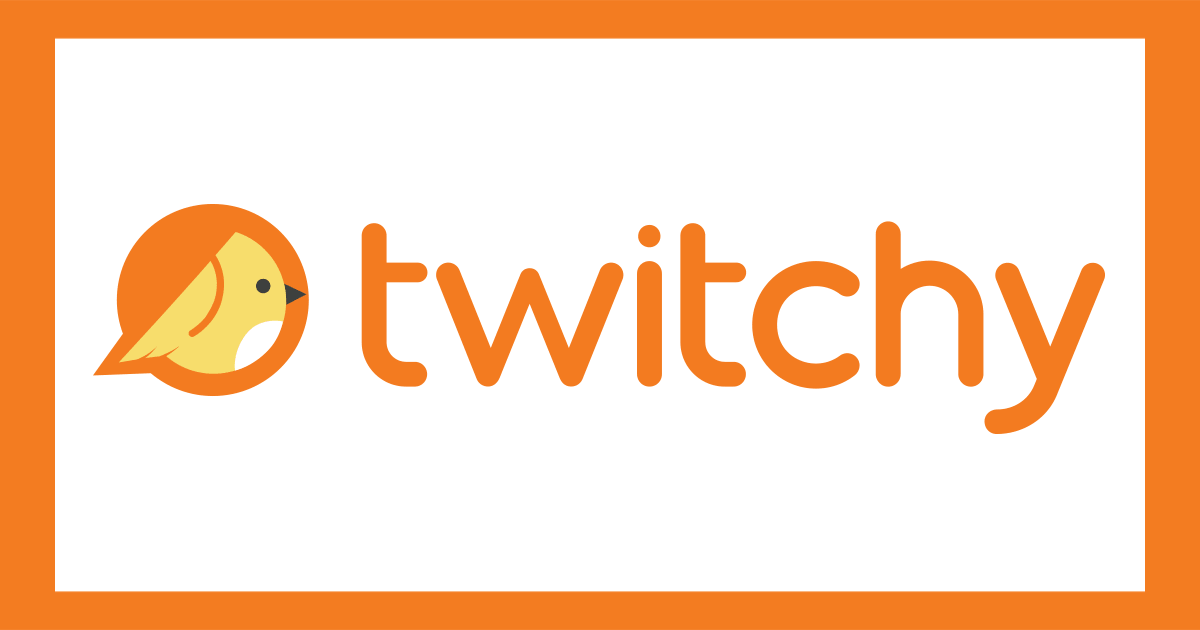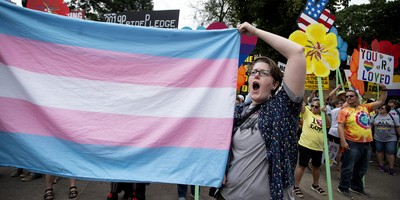According to CBS News, a CDC panel has recommended that frontline essential workers be the next in line for the COVID-19 vaccine, followed by those over 65. Who are these frontline essential workers? CBS News says the group includes “first responders, corrections workers, U.S. Postal Service workers, those who work in education, public transit workers, grocery store workers, and those who work in manufacturing, food and agriculture,” or about 30 million people.
The New York Times reports that “in a meeting last month, all voting members of the committee indicated support for putting essential workers ahead of people 65 and older and those with high-risk health conditions.” But according to the CDC, giving the vaccine to the elderly first would actually save more lives, so what’s going on? A professor managed to heat up the discussion by telling the New York Times that the elderly population is whiter — more privileged, you could say.
Professor gets heat after saying 'whiter' elderly should wait for vaccine https://t.co/RYyVcx6NmV pic.twitter.com/b6PU5hXj5z
— New York Post (@nypost) December 19, 2020
Harald Schmidt, an expert in ethics and health policy at the University of Pennsylvania, said that it is reasonable to put essential workers ahead of older adults, given their risks and that they are disproportionately minorities. “Older populations are whiter, ” Schmidt said. “Society is structured in a way that enables them to live longer. Instead of giving additional health benefits to those who already had more of them, we can start to level the playing field a bit.”
We can start to level the playing field a bit by giving the vaccine to the more diverse group of essential workers first? Really?
Everybody knows that we need to fight discrimination based on immutable characteristics by discriminating based on immutable characteristics. ?
— Mark Cancellieri (@MarkCancellieri) December 19, 2020
There is beginning to be an inverse relationship between a college education and a person’s level of intelligence; particularly at @Penn
— Theodore (@RefDemo) December 20, 2020
Of course he’s a professor.
— Mike Ryan (@MFR_MikeRyan) December 19, 2020
He's teaching Health "Ethics"….fantastic ?
— ZG (@ZG2UCF) December 19, 2020
I think everyone that has ever attended a class, led by this professor, is entitled to a tuition rebate.
— ali marie girardi (@AliGirardi) December 20, 2020
We know they think this. That's not a shock. The shock is that he said it for print in the NYT and they were okay with this.
— President-Elect Dr. Stoaty Weasel (@sweasel) December 19, 2020
He’s the virus ?
— MonkeyMagic (@monkeymagic777) December 19, 2020
He’s essentially saying don’t vaccinate the population that is actually dying from the virus. Can’t make it up.
— Bob A (@ba6116) December 19, 2020
We told you that the CDC itself found that vaccinating the elderly first would save more lives, but there’s that sticky question of “ethics.” Here’s a very long thread by David Algonquin that spans a couple of days but lays out how the CDC arrived at its conclusion. Ethically, they pondered, how could they best promote justice with the vaccine?
The US CDC is going to recommend that 'essential workers' are vaccinated before the over-65s, despite their *own modelling* showing this will result in more deaths.
Why? They say it is unethical to prioritise the elderly because they are not racially diverse enough. THREAD.
— David Algonquin (@surplustakes) December 17, 2020
This is based on the slide pack below.
This takes for granted that healthcare workers will be first-in-line. The question is whether the next group should be other essential workers, the over-65s or adults with high-risk conditions.https://t.co/r9QDsMZt5E
— David Algonquin (@surplustakes) December 17, 2020
The authors do this by rating each group out of three for each of three metrics:
– Science (e.g. deaths and infections prevented)
– Implementation
– Ethics pic.twitter.com/IbwJKcaceh— David Algonquin (@surplustakes) December 17, 2020
First, Science.
The authors rely on modelling of the deaths prevented by prioritising each of the three groups, for both a "disease-blocking" and an "infection-blocking" vaccine scenario.
— David Algonquin (@surplustakes) December 17, 2020
In both scenarios, vaccinating the over-65s is predicted to save the most lives.
In the disease-blocking scenario (which sounds more relevant to the Pfizer vaccine) more than twice as many deaths are saved by vaccinating the elderly first, compared to essential workers. pic.twitter.com/wrDvpvM3o8
— David Algonquin (@surplustakes) December 17, 2020
Despite this, the authors conclude that the "Differences among 3 strategies is minimal" (sic). Each strategy is thus awarded 3 out of 3 marks.
Implementation is considered easier for the elderly than the other two groups, resulting in the scores below: pic.twitter.com/DpQwiu72Rd
— David Algonquin (@surplustakes) December 17, 2020
So – with just Ethics to go – the over-65s are in the lead. Ethics is itself split into three sub-categories.
The key consideration (helpfully highlighted in red) seems to be that "Racial and ethnic minority groups [are] are under-represented among adults>=65" pic.twitter.com/I2FxMuAb09
— David Algonquin (@surplustakes) December 17, 2020
Other considerations that seem important are:
i) adults with high-risk medical conditions must have been diagnosed which implies that they have access to healthcare (which counts against them)
ii) essential workers are unable to work from home— David Algonquin (@surplustakes) December 17, 2020
So in terms of Ethics, vaccinating essential workers first looks best, scoring the maximum in all sub-categories.
Now, note that the over-65s come in 2nd with 6 out of a possible 9 because… pic.twitter.com/QR535wIxmc
— David Algonquin (@surplustakes) December 17, 2020
This is translated to a mark of 1/3 in the overall assessment, meaning that Essential Workers pip the elderly to the post by one mark.
What drama! pic.twitter.com/ZPGJaax3Hc
— David Algonquin (@surplustakes) December 17, 2020
So the recommendation that essential workers are next in line after healthcare workers.
I believe that the CDC is making a final decision this Sunday (though states have the final call).
This is the same CDC that comprehensively botched the initial stages of the pandemic. pic.twitter.com/7n9PQ94JZc
— David Algonquin (@surplustakes) December 17, 2020
This seems to me a clearly wrong decision and is out of line with what the UK, for example, is doing.
I am also sceptical of the modelling results given the vastly greater risks faced by the elderly (the below graph showing this is also from the report). pic.twitter.com/uKcMqvOVnt
— David Algonquin (@surplustakes) December 17, 2020
Incidentally, this report has many classic bureaucratic hallmarks:
– the spurious symmetry of three equally weighted categories, each with sub-categories
– the erratic marking thereof
– the artificial separation of "Ethics" and "Science"
– the opaque and questionable modelling— David Algonquin (@surplustakes) December 17, 2020
Bureaucracy is too important to be left to the bureaucrats.
— David Algonquin (@surplustakes) December 17, 2020
Worth making clear that the views in the slide pack are not just those of the author.
The recommendation to prioritise "essential workers" was unanimously approved by the 14 voting members of the relevant CDC committee (ACIP). pic.twitter.com/9ZtfkGArfy
— David Algonquin (@surplustakes) December 18, 2020
The Director of the CDC, Dr. Robert Redfield, intervened a couple of weeks after the meeting to recommend greater priority was given to the over-70s. Good…
But only if they live in multi-generational households. Partly because such households are more diverse. pic.twitter.com/c61gkSYp8z
— David Algonquin (@surplustakes) December 18, 2020
“Often our Hispanic, Black and Tribal Nations families care for their elderly in multigenerational households and they are also at significant risk.”
A reminder that states are perfectly capable of messing this up without the help of the CDC:
Nevada, New Hampshire and Wyoming are including cops in the very highest priority group, alongside healthcare workers.https://t.co/7WVJQS4UBr
— David Algonquin (@surplustakes) December 18, 2020
It's interesting to compare the UK approach.
As you can see below, there is no concept of an "essential worker" and healthcare workers are only in the second priority group along with the over-80s. pic.twitter.com/s36BnUH9DR
— David Algonquin (@surplustakes) December 18, 2020
The fact that these groups cover 99% of Covid deaths reflects how age dominates almost all other risk factors.
Risk of death doubles with every ~7 years of age. Like all exponential processes, this is hard to get your head around. @d_spiegel on this:https://t.co/LYYvFmM1A4
— David Algonquin (@surplustakes) December 18, 2020
This also explains the slightly lower priority given to those with underlying health conditions in the UK approach.
This table shows various conditions with increased risk of death in the region 1.25-4.27. This is bad but (very roughly) equivalent to only 2-15 years of aging. pic.twitter.com/mVlyDfN8xH
— David Algonquin (@surplustakes) December 18, 2020
A final note on QALYs (Quality Adjusted Life Years) which I see being brought up a lot. The CDC's analysis looks only at deaths prevented, not at QALYs preserved.
Could vax-ing younger groups make sense, based on the young having their whole lives ahead of them? I think no…
— David Algonquin (@surplustakes) December 19, 2020
First, a back-of-the-envelope calculation. The 25-44s have around 5-10 times as many years remaining to them as the over-75s.
But, if infected, an over-75yo has a risk of death around 400 times higher than someone aged 25-44. pic.twitter.com/q65J5Vg2SP
— David Algonquin (@surplustakes) December 19, 2020
So, in terms of years of life saved, it seems it is around 20-40 times 'better' to vaccinate an over-75yo than someone 25-44. But this is a crude estimate and doesn't adjust for quality.
So we need to see some proper modelling. Thankfully this exists.https://t.co/rHoeC1511x
— David Algonquin (@surplustakes) December 19, 2020
This concludes that in QALY terms in it is best to vaccinate the oldest first.
It's still just about possible that looking at QALYs rather than deaths might have affected the results of the Science evaluation in the CDC report. But I doubt it. pic.twitter.com/xONH3Ntnoj
— David Algonquin (@surplustakes) December 19, 2020
I suspect is that the average age of those saved in each of the scenarios was very similar and that vaccinating "essential workers" mostly reduced deaths via reduced transmission to the elderly.
Clearly this whole area needs far more modelling attention and transparency.
— David Algonquin (@surplustakes) December 19, 2020
UPDATE: as you all may now have seen, the CDC has seen the light & quietly shelved their previous recommendation and now support vaccinating >75s alongside a subset of 'essential workers'.
65-74s are a stage later, forming c. 1/5 of a huge lower priority group of 129m people. pic.twitter.com/fgDyDc8ibn
— David Algonquin (@surplustakes) December 20, 2020
This is a vast improvement over the previous plans, though still not optimal in my view. Still, compared to a pure "vax the old" approach like Germany or UK, should only delay the protection of the >75s by a couple of weeks.
— David Algonquin (@surplustakes) December 20, 2020
It's worse for 65-74s, who still have an IFR of 2.4% and will have to wait many months to be vaccinated under these plans.
They will face very hard choices in the coming year.https://t.co/G0KCR1KRQ3
— David Algonquin (@surplustakes) December 20, 2020
It's now up to states.
There will be a vigorous state-by-state lobbying campaign by various companies and unions keen to crowbar their workers/members into the "frontline essential worker" category. pic.twitter.com/NpNwFpPmpV
— David Algonquin (@surplustakes) December 20, 2020
The more of these campaigns that succeed, the longer it will take to protect the elderly, both in the 65-74 and the >75 brackets.
If you live in the US, you need to be vigilant about what's happening in your state.
— David Algonquin (@surplustakes) December 20, 2020
For what it’s worth, Tulsi Gabbard says she’ll wait her turn after the elderly go first.
Heartless, arrogant, unelected CDC bureaucrats have decided that the lives of elderly Americans don’t count. They’re recommending 100 million “essential workers” (i.e. healthy people working at liquor stores or phone companies) can get the vaccine before our grandparents. (1/2) pic.twitter.com/yEn0k0cKBs
— Tulsi Gabbard ? (@TulsiGabbard) December 21, 2020
This is immoral and bad health policy.
I had planned to get the vaccine but will now stand in solidarity with our seniors by not doing so until THEY can. I urge my colleagues who are under 65 and healthy to join me. (2/2)
— Tulsi Gabbard ? (@TulsiGabbard) December 21, 2020
Congress is already getting their shots. Don’t forget the ER doctor snarking over Sen. Marco Rubio getting the vaccine before him but saying nothing about Rep. Alexandria Ocasio-Cortez getting it as “basically a national security measure.”
Related:
For some reason, this ER doc is only snarking on 49-year-old Marco Rubio for getting the vaccine and not 31-year-old AOC https://t.co/BN52eOPz4m
— Twitchy Team (@TwitchyTeam) December 20, 2020
























Join the conversation as a VIP Member